We don't do documentary,' was the response from Wouter Barendrecht, co-founder of Fortissimo Films, when John Sloss of Cinetic Media approached him to see if Fortissimo might be interested in handling a small-scale film about child abuse called Capturing The Friedmans in 2003.
At that time, Fortissimo did not handle docs as a matter of policy. 'I always liked documentary but I had an initial corporate policy that if you see one documentary, you have to see them all,' Barendrecht says. However, Capturing The Friedmans changed the company's attitude. Here was a documentary the company was able to sell as aggressively as any fictional feature.
Six years on, Fortissimo will be arriving at the early 2009 markets with a slate bulging with documentaries. Among them are Robert Kenner's Food, Inc, about the food industry in the US, Endgame Entertainment's Every Little Step, about the revival of A Chorus Line on Broadway, and Nati Baratz's Unmistaken Child, about a Buddhist priest looking for the reincarnation of his guru. Later in the year, Fortissimo will be introducing Jonathan Demme's Bob Marley documentary.
It is not just Fortissimo that now handles documentaries regularly. Other big independent sales outfits are also working with non-fiction features. At the International Documentary Festival Amsterdam (Idfa) this week, Hengameh Panahi, president of Celluloid Dreams, was in attendance. High-profile documentaries on Celluloid's slate include Franny Armstrong's The Age Of Stupid, Erwin Wagenhofer's Let's Make Money, Matt Tyrnauer's Valentino: The Last Emperor and Elizabeth Chai Vasarhelyi's Youssou N'Dour: I Bring What I Love.
'Recently, we (at Celluloid) have noticed the emergence of documentary feature-length (films) as a genre,' notes Panahi. 'The films are really strong. They deal with universal topics and they are very well made. Nowadays, when the market is so crowded, to have a very strong documentary that is well-made, with a great universal subject, is even easier to market than another romantic comedy for example.'
Celluloid began handling documentaries when some of its stable of directors, such as Abbas Kiarostami, started making them. Panahi likens the emergence of feature documentary to the rise of animation as a viable genre in the marketplace. At first, there was considerable scepticism from buyers about the theatrical prospects of the form. Then, just as films such as Persepolis or Howl's Moving Castle transformed attitudes about animation, a series of strong documentaries with theatrical potential convinced distributors the form was worth exploring.
Billed variously as the 'Cannes of the documentary world' and the 'Mecca of documentary', Idfa is nonetheless an event at which you would not normally expect to see the likes of Panahi and Barendrecht (who was on the Idfa competition jury this year). There is always a strong industry presence in Amsterdam but the major players tend to be the broadcasters, commissioning editors such as Nick Fraser of the BBC's Storyville, or his counterparts at ZDF and Arte. TV still drives the documentary world.
Idfa has a very different rhythm and atmosphere to Cannes, Venice or Berlin. Although audiences are huge, there are few stars, no publicists and no red carpet.
The big names who do turn up - this year, chess champion-turned-politician Garry Kasparov and Senegalese musician Youssou N'Dour - are invariably invited to take part in human-rights debates rather than glad-hand distributors.
The financing and co-production events are very different too. As Barendrecht notes with something approaching awe, documentaries can sometimes be fully financed within a day. 'It's a smaller world, of course, but it seems a very efficient world. Because budgets are lower, efficiency can be much higher.'
At the Idfa Forum, producers pitch a project to a table of commissioning editors from all over the world. If enough of them 'bite', the financing can be completed almost instantly. The bigger sales agents are unlikely to pre-sell docs unless they have big names attached such as Jonathan Demme, Martin Scorsese, Michael Moore or the Rolling Stones. And documentaries do not sell theatrically everywhere. For example, Asian buyers do not seem much interested in the form. As with fictional features, English-language fare remains easier to sell.
Around half the documentaries screening at Idfa this week do not have sales-agent representation. Peter Jager of Vienna-based documentary sales specialist Autlook, which has handled such titles as Our Daily Bread and Blind Loves, points out that at big festivals such as Cannes, Venice or Berlin, competition movies will all have sales agents representing them. At Idfa, 60%-70% are not represented.
And then there are the many less obvious documentaries that specialist companies handle, such as Montreal-based Films Transit, one of the pre-eminent non-fiction sales outfits, which had a bulging slate at Idfa. Among its titles with at least some potential to work theatrically was US director Rick Minnich's Forgetting Dad and Heddy Honigmann's El Olvido, warmly received in San Sebastian earlier this autumn.
Buyers have learned to be wary. In Berlin in 2007, one of the most eagerly touted projects was Morgan Spurlock's Where In The World Is Osama Bin Laden' Few of its eventual distributors enjoyed especially impressive results. The film's worldwide gross was a disappointing $622,000.
A tiny proportion of the hundreds of feature documentaries screening at Idfa are likely to have a theatrical life. But these are the films wanted by the bigger independent sales agents. About 90% of the documentaries Fortissimo has picked up over the last six years have been aimed at theatrical distribution. The company is more likely to handle titles such as Super Size Me and Berlin opener Shine A Light that can be pitched easily and sold in much the same way as a dramatic feature.
Jager is not surprised to see the big players pushing into the non-fiction market: 'In the last four or five years, we have seen documentary getting more cinematic, like fiction, using scores and the evolution of characters. Also, very important is our world. The world needs big themes and the small stories that tell big tales because it is chaos out there.'
Barendrecht makes a similar point. 'Some distributors would say documentaries are tougher (to release) than a couple of years ago. On the other hand, I think in a lot of countries, people are fed up with their governments and might have an appetite again to hear a different voice and not the official version. Maybe post-Obama, it's going to be different again. That's what is interesting about the documentary world - it's very rooted in our daily lives. A film that you start today could maybe be totally outdated by next year.'
| TOP 10 DOCUMENTARIES*, 2008** | |||
| Title (origin) Int'l sales | W'wide gross | ||
| 1 | Shine A Light (US-UK) Fortissimo Films | $11.8m | |
| 2 | Waltz With Bashir (Is-Ger-Fr) The Match Factory | $5.2m | |
| 3 | Man On Wire (UK-US) The Works | $4.4m | |
| 4 | The Meerkats (UK) The Weinstein Company | $2.1m | |
| 5 | L'Avocat De La Terreur (Fr) Wild Bunch | $1.2m | |
| 6 | American Teen (US) Paramount Vantage | $989,319 | |
| 7 | The 11th Hour (US) Warner Bros | $925,976 | |
| 8 | Sharkwater (Can) Horizon Motion Pictures | $925,353 | |
| 9 | Fade To Black (US) Paramount Vantage | $731,687 | |
| 10 | Sketches Of Frank Gehry (Ger-US) Fortissimo Films | $727, 260 | |
| *Excluding Imax films **To November 23. Source: Rentrak | |||

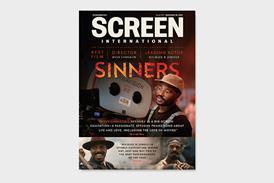
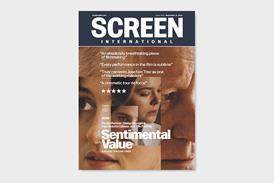
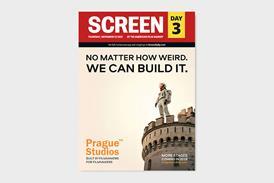
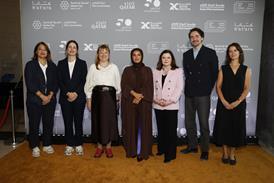
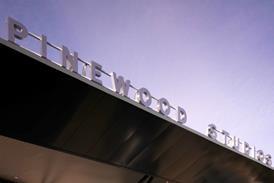
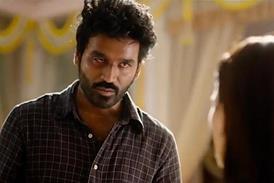



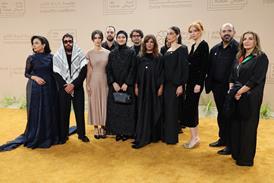

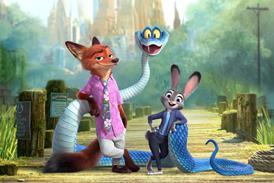
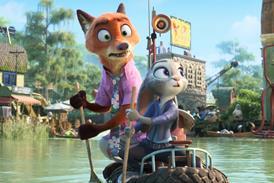

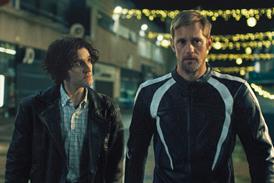

No comments yet